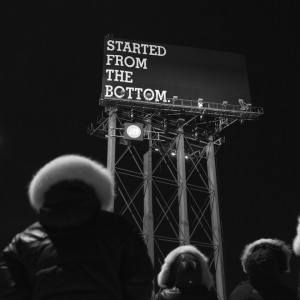Movin’ on up?: R & B and Class Politics
In anticipation of tomorrow’s class (I expect most of you are busy with your listening exercises), I thought I’d post a link to this short piece that was published on the Guardian website last week. It asks about the consequences of the ‘gentrification’ of R&B, with a nod to hip hop. Looking at three performers who crossover between television and music (former American Idol Fantasia, K Michelle and Tamar Braxton), it wonders if the genre has lost its connection to working class culture in America. In the words of this article, these are artists that
trade on raw, sometimes jarring honesty, delivered with unvarnished passion. They sing about pain and experiences their audiences relate to, empathically told stories from a place that entirely lacks privilege.
The author links these performers to R&B’s ‘aspirational’ origins, noting that these have been obscured in the latest releases of many other performers. Speaking of the big names in music journalism, the author laments:
In the press, the aspirational thread inherent to R&B reaches its logical conclusion as, increasingly, the only acts deemed worthy of coverage are those representing the genre’s most gentrified strain.
Tracing the shift in hip hop in the move from Jay Z’s up-and-coming street hustler to Kanye’s insecure millionaire or Drake’s ‘lonely boy‘ appeal, this trend is happening in many different places. The ultimate conclusion being that this is
just another illustration that pop music is increasingly for the privileged. And it’s not necessarily a bad thing, but middle-class ambitions to be truly accepted into the 1% has limited mileage as a compelling artistic subject. But artists whose public image and music is explicitly blue-collar or working class are being shut out of the conversation. Especially in genres that have historically given a voice to those demographics, and that can only be seen as a shame.
In many ways, this speaks directly to some of the themes raised by Bennett. As he talks about the idea of ‘homology’ as a way of reading popular music as an expression of class. Is it accurate to read these generic changes into changes in the access individuals have to music? Does this piece presume a certain correspondence between representations of class and the experience of class? Finally, how are these ‘homologies’ tied up with assumptions about relationship between race and class?

Cover of Drake’s ‘Started from the Bottom’ single.
